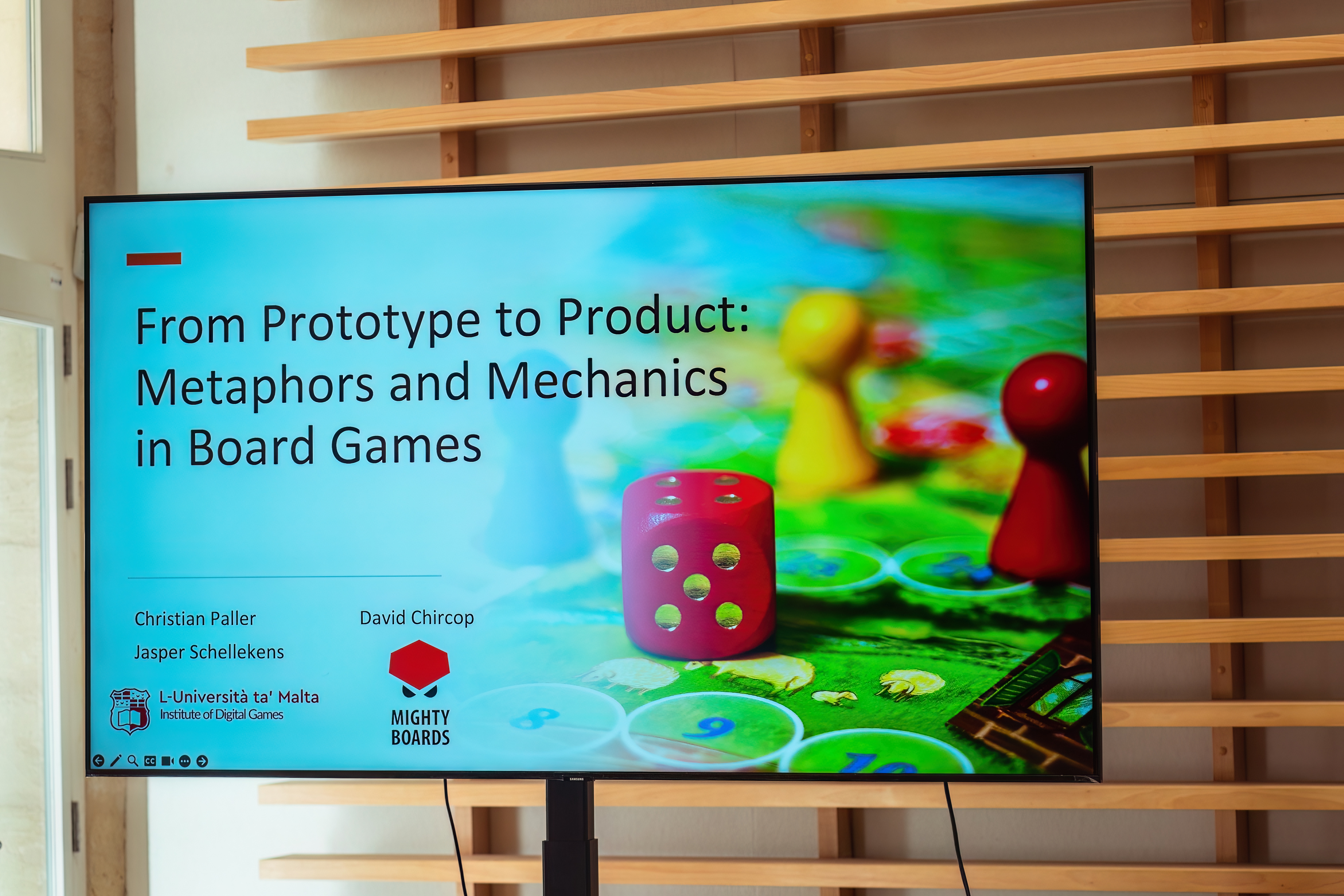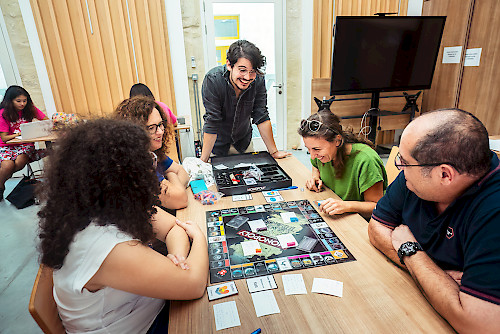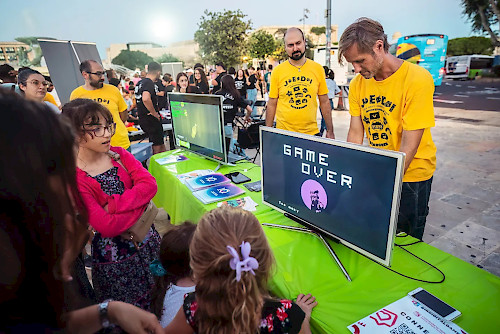
Science in the City 2024 - AI-powered learning and inclusive game design


The annual Science and the City Festival connects research with science on the bastions of Valletta. Curious visitors were able to interact with some of the ongoing research at the Institute of Digital Games such as a recycling data-game, eye-tracking research, and research in LLMs to assist in theming games. As part of the festival’s pre-event a design workshop at the Valletta Design cluster together with local board game design company Mighty Boards allowed participants to engage with using game design to communicate a message.
RECLAIM’s Novel Recycling Data-Game
The RECLAIM project is developing a portable, robotic Material Recovery Facilities tailored to small-scale material recovery. In line with the festival goals, the RECLAIM project takes a citizen science approach to increase social sensitivity to recycling. It does this through a novel Recycling Data-Game that enables and encourages citizens to participate in improving recycling procedures by providing annotations to be used in deep learning for the retraining of the actual AI module. The game works to educate but also to train the AI used in the robotic facilities thereby uniquely harnessing technology, game design, and AI to make a real impact for remote areas looking to improve their recycling facilities.
Procedural Rhetoric - Using Game Mechanics to Communicate
The workshop explored how game mechanics impact the 'messages' of games. As important cultural artefacts, games can tell us a lot about the cultures that created and played them. And like movies and books they also communicate ideas and influence the attitudes of the players. Examples of gameplay that may reflect or influence attitudes are the rewards for having children in the game 'Life' or the rewards for purchasing property in 'Monopoly'. In some cases, gameplay can even send the wrong message entirely, as it did when using Tetris mechanics in Playing History 2. The workshop started with an overview of the process from prototype to final version then gave participants the chance to experiment with their own prototypes to see how their changes influenced the message of the game. PhD student Christian Paller led the workshop connected drawing on his research into the Horizon Europe Strategies project, Prof. Gordon Calleja’s theory of immersion, and applied design analysis of Construction BOOM!

Eye-tracking and alternative controllers
Xtreme Yoga, by Dr David Melhart and Jasper Schellekens, allowed festival visitors to experience how games can feel with alternative controllers. No surprise, as the resultant research demonstrated that children’s facial video and physiological data that joy, surprise, physiological arousal and emotional arousal are significantly higher when using the eye tracking.

Read more:
Data Agent: An educational Data Game by Prof. Antonios Liapis
CrawLLM - graphics, story, and antagonists themed by Large Language Models and Diffusion Models by Marvin Zammit and Prof. Antonios Liapis

